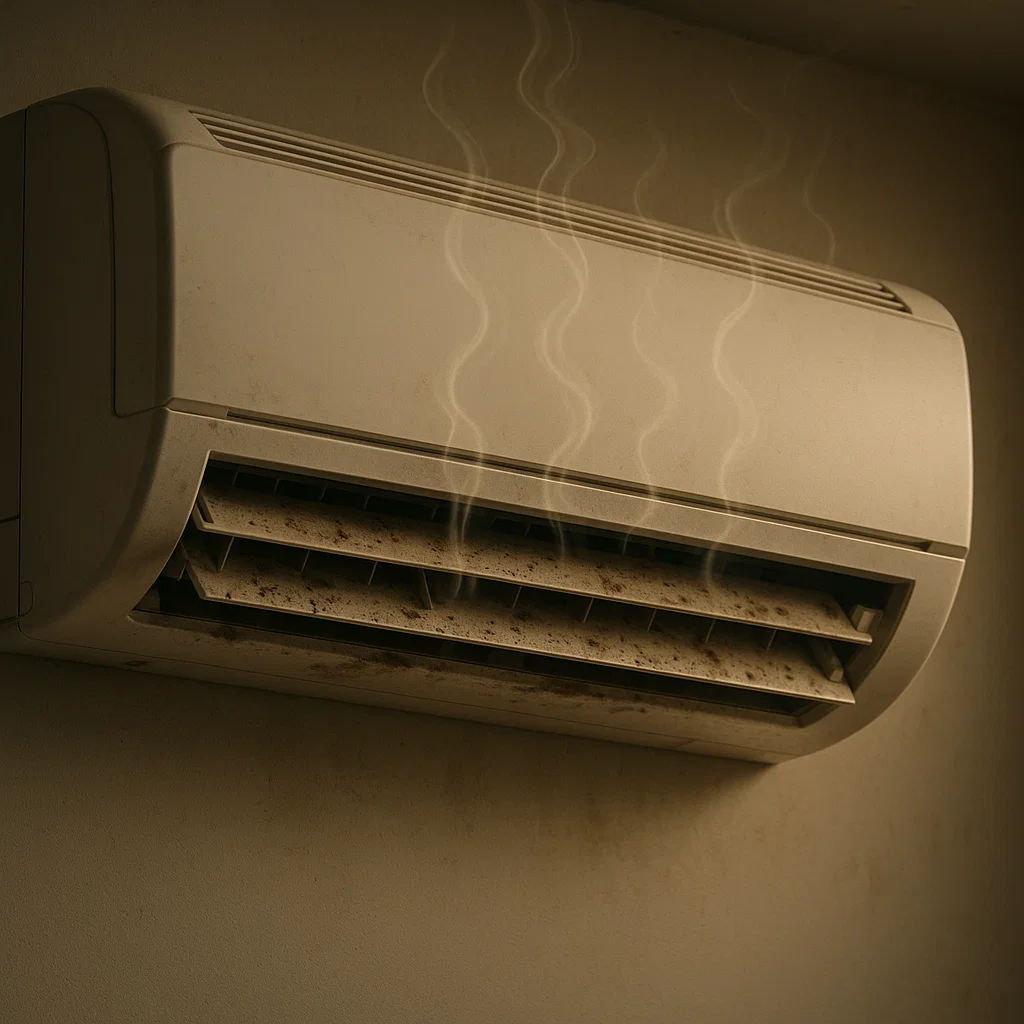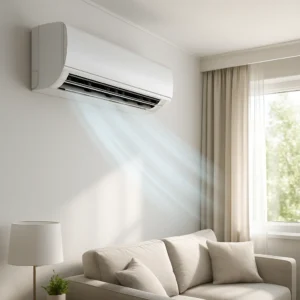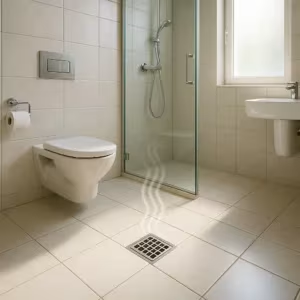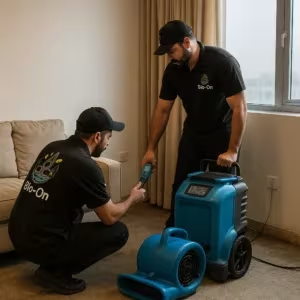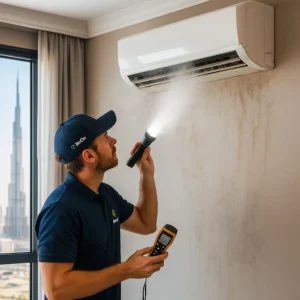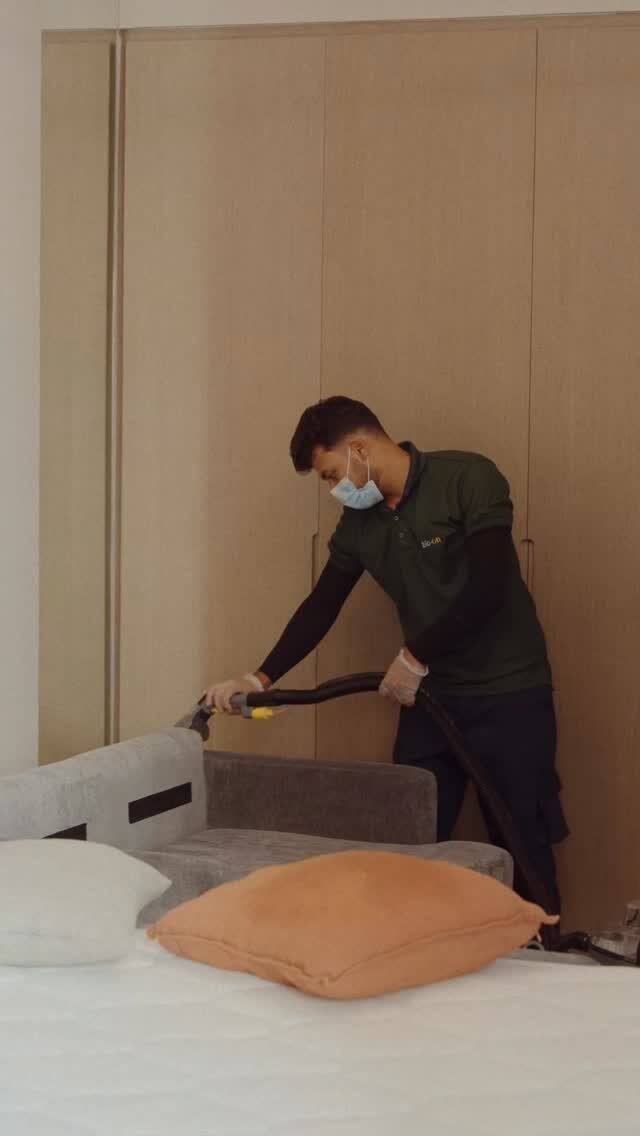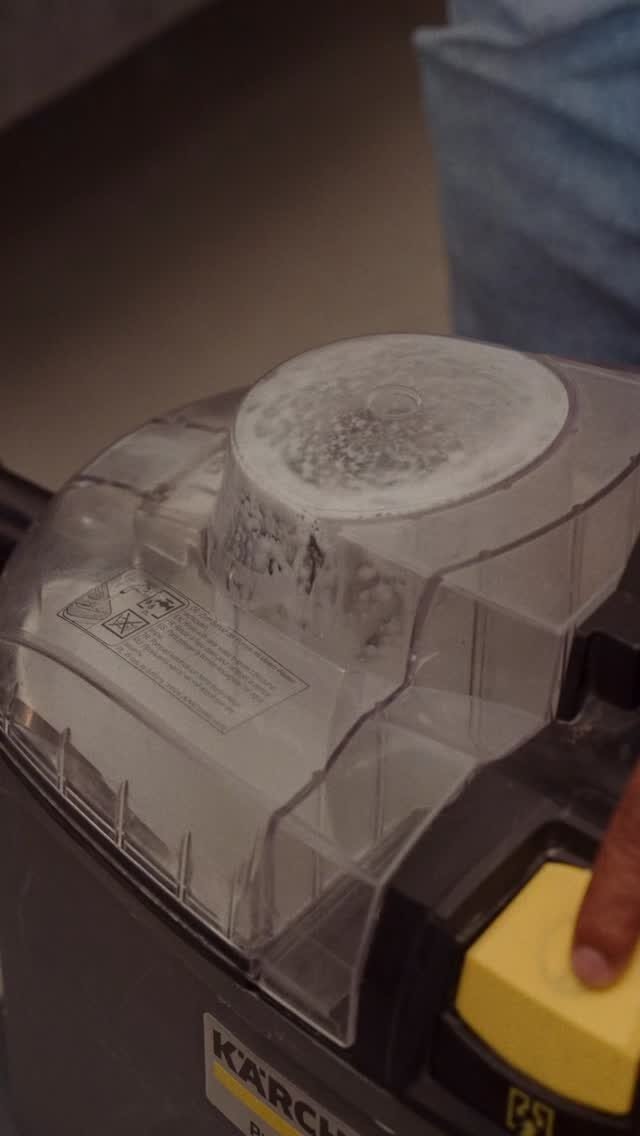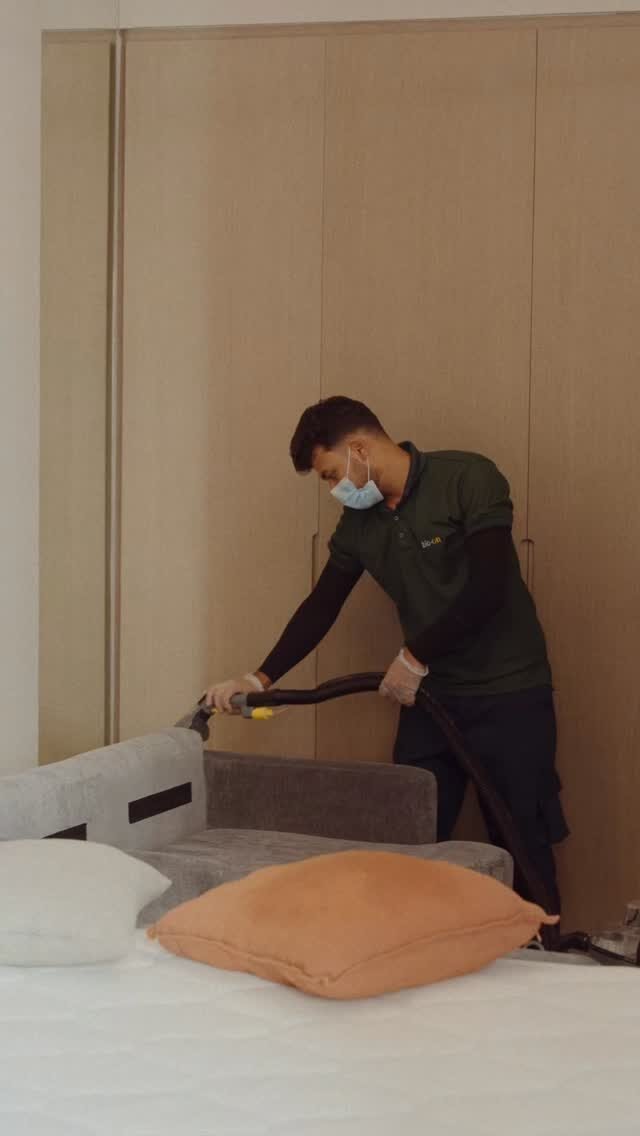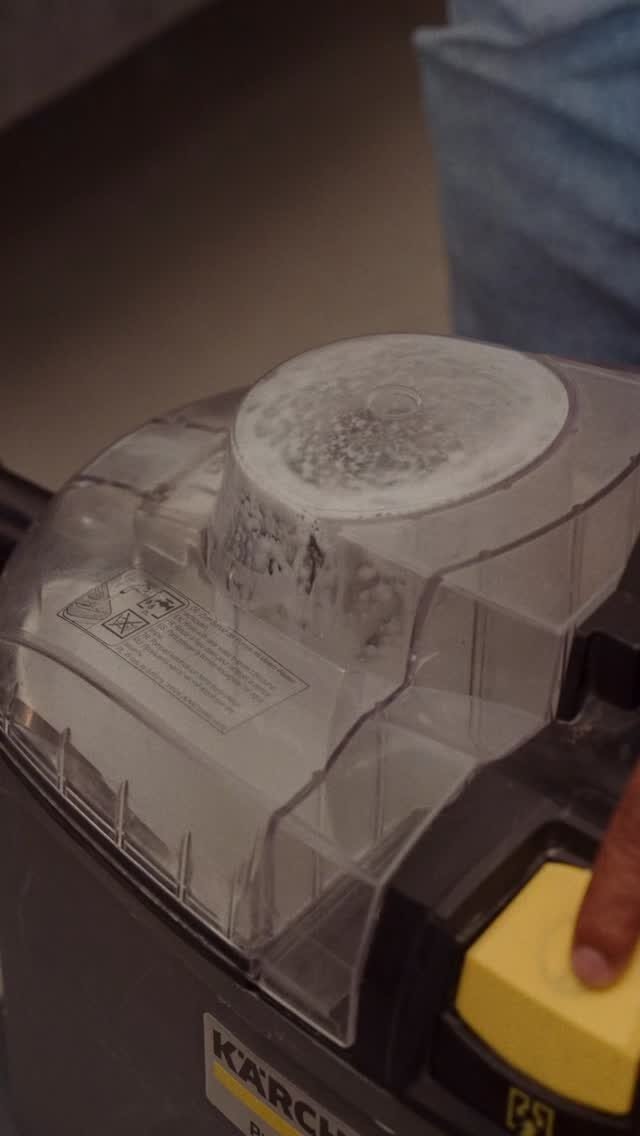If your air conditioner smell bad, it can make your whole home feel uncomfortable. In the UAE, where AC units run almost all year due to the hot climate, a bad smell from the AC is a common issue many households and offices face. The smell is not only unpleasant but can also signal a health or maintenance problem that needs attention. Understanding why your air conditioner smells bad, what you can do to fix it, and how to prevent it in the future will help you keep your indoor air fresh and safe.
Table of Contents
ToggleWhy Does an Air Conditioner Smell Bad?
There are several reasons why your AC might produce foul odors. Each type of smell usually indicates a different problem:
- Musty or Moldy Smell: Often caused by mold or mildew growing inside the evaporator coils or ducts due to trapped moisture.
- Burning Smell: May indicate overheating wires, electrical issues, or a malfunctioning motor.
- Rotten Egg Smell: Can be caused by dead pests inside the ducts or, rarely, a gas leak nearby (requires urgent attention).
- Chemical Smell: Could be refrigerant leaks or off-gassing from new AC components.
- Dirty Socks Smell: A common nickname for bacteria buildup on coils that creates a sour odor when the AC starts running.
Each smell provides a clue. If your AC smell bad consistently, it’s time to investigate further or call for professional cleaning.
Is a Bad AC Smell Harmful?
A bad smell isn’t just annoying—it can also affect your health:
- Mold exposure: Breathing in spores can trigger allergies, asthma, and respiratory irritation.
- Chemical exposure: Inhaling refrigerant or burning smells may cause headaches or nausea.
- Sewer-like smells: Indicate bacteria or gases entering your home, which can be dangerous.
That’s why a persistent AC odor should never be ignored. It’s better to solve the problem quickly than to risk long-term effects on your family’s wellbeing.
Common Causes of Air Conditioner Smell
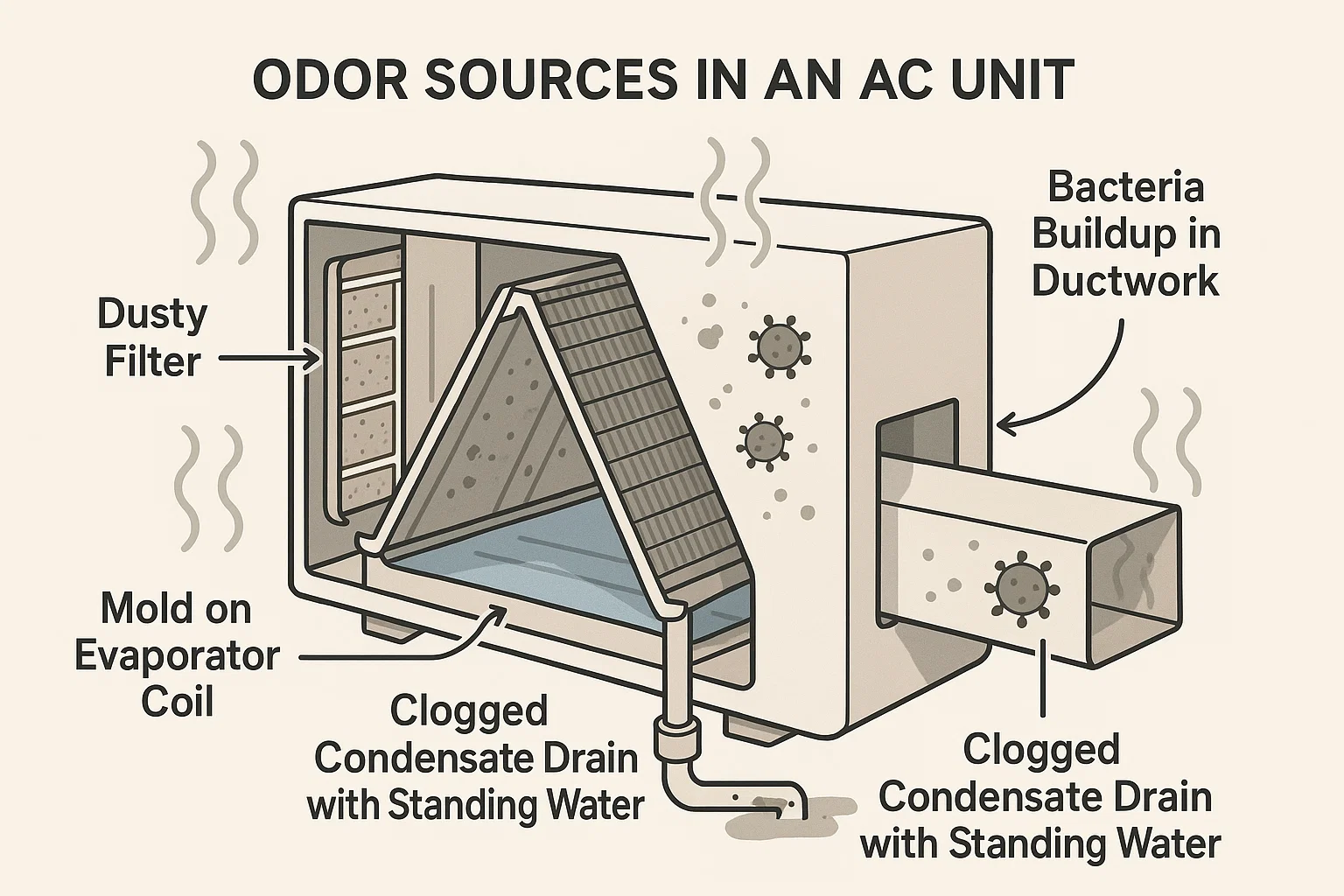
In UAE homes and offices, the most frequent causes of AC odor include:
- Dirty filters: Dust and debris build up on filters and release a stale smell into the air.
- Clogged condensate drain: Water trapped inside the unit creates a breeding ground for bacteria and mold.
- Moldy ductwork: High humidity leads to condensation in ducts, allowing mold growth.
- Poor maintenance: Without regular cleaning, coils and fans accumulate dirt and odor-causing bacteria.
- Dead pests: Rodents, insects, or small animals trapped in the ducts can decompose and cause a strong rotten smell.
Quick Fixes to Remove AC Smell
If your air conditioner smell bad, try these simple steps first:
- Change the air filter: Replace disposable filters or clean reusable ones every 1–2 months.
- Clean the drain pan and line: Flush the condensate line with a mixture of water and vinegar to kill bacteria.
- Wipe down accessible parts: Use a damp cloth with mild detergent to clean vents and visible components.
- Run the fan mode: Allowing the fan to run without cooling helps dry out moisture inside the unit.
- Use baking soda nearby: Place an open box near the vents to absorb lingering odors temporarily.
These steps can help if the issue is mild, but if the smell returns quickly, the problem is likely deeper inside the system.
Professional Cleaning for Bad AC Smell
When home remedies don’t work, professional air conditioner cleaning is necessary. This process typically includes:
- Deep coil cleaning: Removing mold and dirt buildup on evaporator and condenser coils.
- Duct disinfection: Using safe, eco-friendly sprays or fogging to kill bacteria and fungi inside ducts.
- Drain line flushing: Clearing blockages and treating with antibacterial solutions.
- Fan and blower cleaning: Removing dust from moving parts to improve airflow and reduce odors.
- Filter upgrades: Installing high-efficiency filters that capture bacteria and odor particles more effectively.
Professional cleaning not only removes smells but also improves AC efficiency and reduces electricity costs, making it a valuable investment for UAE households.
How to Prevent Your AC from Smelling Bad
Once the smell is gone, prevention is the key to keeping your air fresh. Here are useful tips:
- Replace or clean filters regularly.
- Schedule professional AC servicing at least twice a year.
- Keep the area around your AC unit clean and dry.
- Use a dehumidifier in rooms with high moisture levels.
- Check ducts and vents for leaks or mold growth.
- Run the AC on fan mode occasionally to dry out moisture.
These steps are simple but make a big difference in preventing odors and improving indoor air quality.
Why AC Smells Are Common in the UAE
AC odor problems are more common in the Emirates compared to cooler regions. High humidity, long cooling hours, and dust storms all contribute to faster buildup of dirt, mold, and bacteria inside air conditioning systems. Without regular maintenance, the smell becomes worse over time. That’s why it’s especially important for UAE residents to focus on prevention and cleaning routines.
When to Call Professionals
Call for professional help if:
- The smell is strong and sewage-like.
- You notice visible mold on vents or coils.
- The odor comes back within a few days of cleaning filters.
- You smell chemicals, burning, or rotten eggs from the unit.
These signs indicate problems that can’t be solved with DIY fixes and require expert tools and knowledge.
Conclusion
If your air conditioner smell bad, don’t ignore it. Bad smells can signal mold, bacteria, blocked drains, or even mechanical problems. Start with simple fixes like changing filters and cleaning drains, but if the problem persists, professional AC cleaning in UAE will ensure the smell is eliminated at its source. With regular maintenance and smart prevention, us and you can keep your air conditioning system fresh, efficient, and safe for everyday use.







